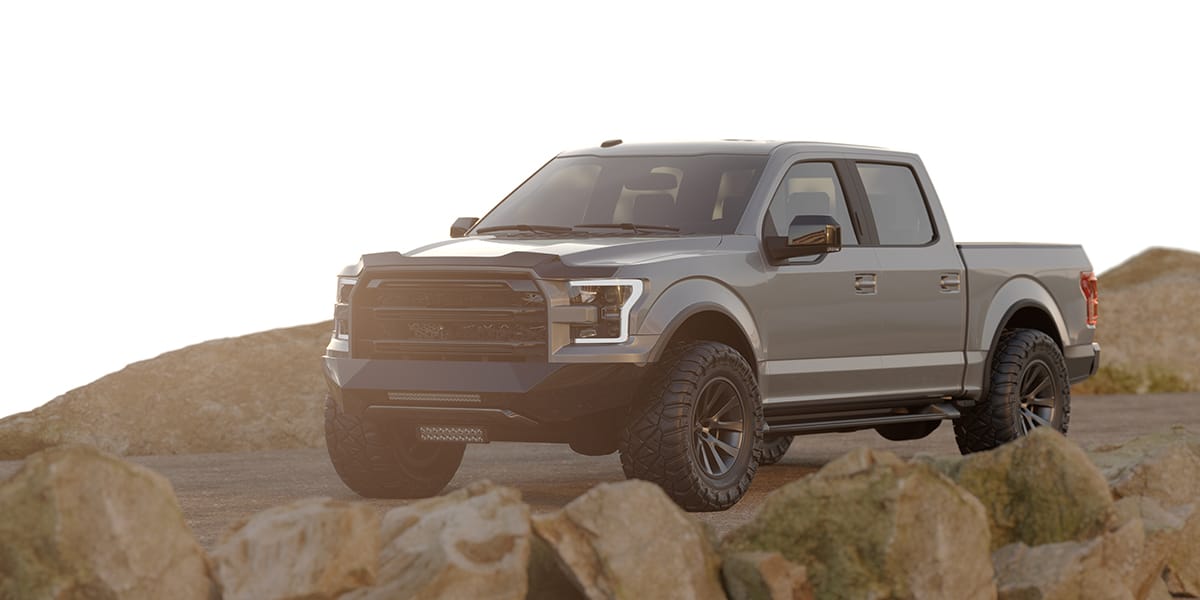Pickup trucks are admired for their versatility and rugged functionality. Whether it’s for personal use, outdoor adventures, or heavy-duty work, these vehicles are designed to take on a range of tasks. The weight of a pickup truck is a crucial aspect that impacts its performance and driving experience.
The average weight of a heavy-duty pickup truck typically falls within the range of 4,000 to 8,000 pounds.
This guide dives into the specifics of pickup truck weight, outlining the factors contributing to it, and how it influences the vehicle’s capabilities.
The Average Weight of Pickup Trucks
The weight of a pickup truck is an essential part of automobile knowledge. It influences several aspects of a truck, such as its performance, fuel efficiency, handling, and legal compliance. So, what is the average weight of a pickup truck? Let’s dive in.
Comparing the Weights of Popular Pickup Truck Models
Different truck models have varying weights, primarily due to the diversity in their size, build materials, engine type, and additional features. Here are the weights of some popular models for a more detailed perspective:
- Ford F-150: A leading model in the light-duty segment, the F-150’s weight ranges around 4,750 pounds, depending on the configuration.
- Chevrolet Silverado 1500: This model’s weight is around 5,000 pounds, influenced by its different cab and bed size options.
- RAM 1500: With a weight range of 5,000 pounds, the Ram 1500 stands as a sturdy contender in the light-duty class.
- Toyota Tundra: The Tundra’s weight is around 5,390 pounds, owing to its robust build.
- GMC Sierra 1500: Depending on the configuration, the Sierra 1500 weighs between 4,500 to 5,400 pounds.
In the heavy-duty category, pickup trucks naturally weigh more due to their larger size and more potent engines:
- Ford F-250: With a weight between 6,100 to 7,300 pounds, the F-250 is a strong player in the heavy-duty truck segment.
- Chevrolet Silverado 2500HD: This model weighs in the range of 6,000 to 7,500 pounds, depending on its configuration.
- RAM 2500: The Ram 2500’s weight varies from 5,800 to 7,300 pounds, showcasing its heavy-duty status.
Factors That Influence a Pickup Truck’s Weight
Several factors influence a pickup truck’s weight. The type and size of the engine, the materials used in the body and frame, the size and type of the cab, the length of the truck bed, the drivetrain configuration (2WD or 4WD), and the presence of any additional features or equipment can all contribute to the overall weight of the truck.
Breakdown of a Pickup Truck’s Weight

The weight of a pickup truck isn’t just about one single factor. It’s a sum of numerous components, each playing its role in the overall performance, fuel efficiency, and safety of the vehicle.
1. Weight of the Engine and Drivetrain
The engine and drivetrain are significant contributors to a pickup truck’s weight. Engines in pickup trucks can vary greatly in size, from smaller four-cylinder engines to large V8 or even V10 engines.
On average, an engine might contribute around 15% to 20% of the total weight. The drivetrain, which transmits power from the engine to the wheels, also adds substantial weight, including the transmission, differential, and axles.
2. Weight of the Chassis and Suspension
The chassis or the frame of a pickup truck forms the backbone of the vehicle, onto which all other parts are mounted. This component, built with steel or sometimes aluminum in newer models for weight reduction, forms a significant portion of the truck’s weight, roughly around 20%.
The suspension system, including shocks, springs, and struts, designed to absorb bumps and provide a smooth ride, adds an additional 5-10% to the total weight.
3. Weight of the Body and Interior
The body of a pickup truck comprises the cab and the bed. The material used here, usually steel or aluminum, affects the weight significantly. The cab’s weight is further influenced by the configuration—whether it’s a single cab, extended cab, or crew cab, with the latter being the heaviest. The interiors, including seats, dashboard, entertainment system, and other convenience features, contribute to the weight too, adding up to 10-15% of the overall mass.
4. Weight of Additional Features
Additional features like towing packages, 4×4 systems, off-road equipment, and aftermarket modifications can also add to the truck’s weight. For instance, a 4×4 system could add several hundred pounds. Similarly, aftermarket modifications such as toolboxes, bed liners, winches, or larger wheels and tires, while enhancing functionality or aesthetics, do contribute to the total weight.
Impact of Pickup Truck Weight on Driving Experience

Understanding how weight impacts various aspects of the driving experience can help drivers adapt their driving style, maintain their vehicle better, and optimize its performance.
1. Weight and Towing Capacity
The towing capacity of a pickup truck is directly related to its weight. Heavier trucks generally have higher towing capacities. This is due to their robust frames and powerful engines that can handle the additional strain.
Every vehicle has a specified Gross Combined Weight Rating (GCWR), which is the maximum allowable weight of the vehicle, cargo, passengers, and towed load. Exceeding this limit can put undue stress on the vehicle’s engine, transmission, and brakes, leading to potential damage or unsafe driving conditions.
2. Weight and Off-road Performance
Pickup trucks are often synonymous with off-road adventures. The weight of a truck influences its off-road performance significantly. Lighter trucks can traverse over soft terrains like sand or mud more effectively as they don’t sink in easily.
Conversely, in certain terrains like rocky inclines, a heavier vehicle might offer better traction. Modifications for off-roading, such as adding skid plates or off-road tires, while increasing the truck’s weight, can dramatically enhance its off-road capabilities.
3. Weight and Handling
Handling refers to how well a vehicle responds to the driver’s inputs and maintains stability during turns or maneuvers. Heavier vehicles like pickup trucks have a higher center of gravity, which can affect handling, particularly at high speeds or during sudden maneuvers.
They may also take longer to stop when braking. However, modern pickups come with advanced suspension systems and driver-assist features to improve handling and ensure safety.






